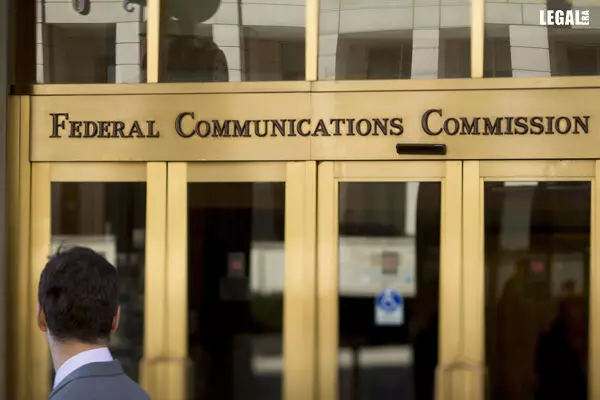- Home
- News
- Articles+
- Aerospace
- Agriculture
- Alternate Dispute Resolution
- Banking and Finance
- Bankruptcy
- Book Review
- Bribery & Corruption
- Commercial Litigation
- Competition Law
- Conference Reports
- Consumer Products
- Contract
- Corporate Governance
- Corporate Law
- Covid-19
- Cryptocurrency
- Cybersecurity
- Data Protection
- Defence
- Digital Economy
- E-commerce
- Employment Law
- Energy and Natural Resources
- Entertainment and Sports Law
- Environmental Law
- FDI
- Food and Beverage
- Health Care
- IBC Diaries
- Insurance Law
- Intellectual Property
- International Law
- Know the Law
- Labour Laws
- Litigation
- Litigation Funding
- Manufacturing
- Mergers & Acquisitions
- NFTs
- Privacy
- Private Equity
- Project Finance
- Real Estate
- Risk and Compliance
- Technology Media and Telecom
- Tributes
- Zoom In
- Take On Board
- In Focus
- Law & Policy and Regulation
- IP & Tech Era
- Viewpoint
- Arbitration & Mediation
- Tax
- Student Corner
- AI
- ESG
- Gaming
- Inclusion & Diversity
- Law Firms
- In-House
- Rankings
- E-Magazine
- Legal Era TV
- Events
- News
- Articles
- Aerospace
- Agriculture
- Alternate Dispute Resolution
- Banking and Finance
- Bankruptcy
- Book Review
- Bribery & Corruption
- Commercial Litigation
- Competition Law
- Conference Reports
- Consumer Products
- Contract
- Corporate Governance
- Corporate Law
- Covid-19
- Cryptocurrency
- Cybersecurity
- Data Protection
- Defence
- Digital Economy
- E-commerce
- Employment Law
- Energy and Natural Resources
- Entertainment and Sports Law
- Environmental Law
- FDI
- Food and Beverage
- Health Care
- IBC Diaries
- Insurance Law
- Intellectual Property
- International Law
- Know the Law
- Labour Laws
- Litigation
- Litigation Funding
- Manufacturing
- Mergers & Acquisitions
- NFTs
- Privacy
- Private Equity
- Project Finance
- Real Estate
- Risk and Compliance
- Technology Media and Telecom
- Tributes
- Zoom In
- Take On Board
- In Focus
- Law & Policy and Regulation
- IP & Tech Era
- Viewpoint
- Arbitration & Mediation
- Tax
- Student Corner
- AI
- ESG
- Gaming
- Inclusion & Diversity
- Law Firms
- In-House
- Rankings
- E-Magazine
- Legal Era TV
- Events
US Federal Court strikes down a rule by FCC which required broadcasters to verify sponsor's identity before leasing air time

US Federal Court strikes down a rule by FCC which required broadcasters to verify sponsor's identity before leasing air time
A Federal Communications Commission (FCC) order which required broadcasters to verify sponsors' identities before leasing them air time has been struck down by the US Court of Appeals for the District of Columbia Circuit.
Earlier, the FCC rules only required a broadcaster to ask its employees and sponsors for enough information to identify the sponsor, under Section 317(a) of the Communications Act of 1934. That section requires broadcasters to exercise "reasonable diligence" in obtaining information to announce who paid for or furnished a sponsored program at the time of the program.
The FCC issued the order over concerns that the Chinese and Russian governments were leasing time on American broadcasting without disclosing that information to broadcasters. As a result, the FCC expanded Section 317(a) in an order called "In the Matter of Sponsorship Identification Requirements for Foreign Government-Provided Programming."
The order required broadcasters to undertake a five-step process to confirm a sponsor's identity before leasing airtime to the sponsor.
A suit was filed by the National Association of Broadcasters (NAB) against the FCC order, objecting to step four of the process which required an independent confirmation of sponsors' identities against federal sources. The NAB argued the order placed too large a burden on broadcasters.
As a result, the court found the FCC order was too expansive. Specifically, the court found that Congress, through the Communications Act of 1934, only granted the FCC the power to require broadcasters to use reasonable diligence in obtaining sponsors' identities. To require broadcasters to go above and beyond that by confirming sponsors' identities with federal sources was an overreach.
As a result of the court's ruling, the FCC order which expanded Section 317(a) is no longer in effect. The regular Section 317(a) rule requiring reasonable diligence, however, remains in effect.



